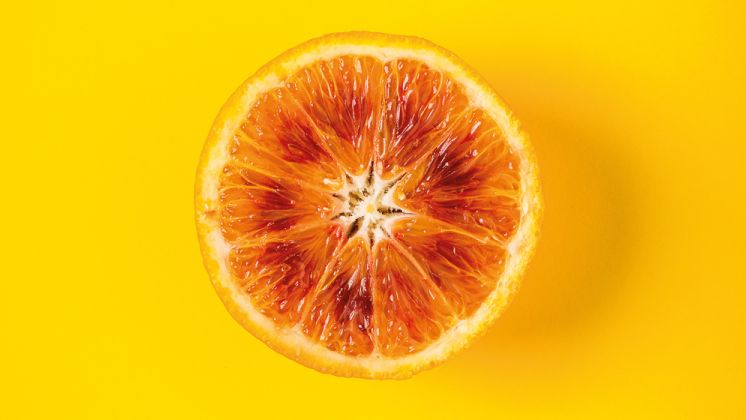Will Eating Fruit Make Me Fat? What?! No
Saying you should avoid fruit if you want to lose weight is trendy. It’s also bananas

You’ve probably heard the argument at some point: fruit contains fructose, fructose is a form of sugar, and sugar is the worst thing you can possibly eat if you’re aiming to get lean or show off a six-pack. Right? Wrong.
“It’s really just a poor interpretation of the chemistry to say you shouldn’t eat fruit for fat loss,” says Luke Leaman, a body composition specialist and co-founder of Muscle Nerds. “It’s not true, and worse, it can have negative health effects, since most people could probably use more fruit in their diet. When you look at how much fructose there actually is in fruit, it’s not that big a deal – especially when you’re training.”
When bargain-basement diet books are claiming that all sugars are equal, the trick is understanding why having a banana is very different to drinking a can of fizzy pop… or even a smoothie. Don’t worry: no degree in chemistry required.
Will eating fruit make me fat?
Not unless you’re already eating badly. “The first thing to understand is that glucose, the most common type of sugar, and fructose, the kind that’s specifically found in fruit, are processed differently,” says Leaman.
In simple terms, glucose is metabolised in both the muscles and liver, but fructose is entirely metabolised in the liver. When you eat too much fructose the liver can’t process it fast enough and instead starts to store it as fat – and also suppresses the hunger-regulating hormone ghrelin, increasing your appetite. But the key part of this is “too much”.
“This is mainly a problem with people who are overeating, or with eating a huge amount of fruit at one time,” says Leaman. “If you’re in a calorie deficit anyway, then any fruit you eat is going to go to energy, any left will carry over into your glycogen stores, and that’s it.”
Get the Coach Newsletter
Sign up for workout ideas, training advice, reviews of the latest gear and more.
So how much can I eat?
Quite a lot. “The critical mass for fructose consumption has been estimated at around 35g a day, and that wasn’t in a trained athlete,” says Leaman.
“Trained athletes and other people who work out burn energy faster, so they can get away with having more – some studies say 80-90g a day still won’t lead to excess fat storage. But anyway, realistically you could eat ten apricots and still only be at 32g of fructose in a day. To give you an example, I recently started eating 300-400g of fruit a day during a diet phase where I lost 10kg of weight and my body fat went from 16% to 8%.”
Are there benefits to eating fruit for fat loss?
In a word, yes. Cutting calories to get lean can also mean losing helpful nutrients. “There are certain things you get from fruit that you can’t get from taking vitamins,” says Leaman. “You want the fibre, you want the phytonutrients, and you especially want the potassium, which has a role in glucose transfer and muscle impulses, and which most people don’t get enough of. Papaya and bananas are particularly high in it.”
RECOMMENDED: High-Fibre Foods
There’s a bonus side effect: potassium also helps to control blood pressure, which is a problem for more men than you’d think. “Stop throwing salt on everything and eat a banana,” says Leaman.
Berries. Strawberries have around 4g of fructose per 100g serving, raspberries slightly more, and blueberries go up to 10g – but that’s more than compensated by a substantial hit of fibre and phytonutrients. There’s also a good argument for eating some of your bananas slightly underripe. “They’ve got a lot of good resistant starch in them,” says Leaman. “Your body can’t really use it, but it’ll feed your gut bacteria.”
Blending or juicing huge amounts of fruit at once. That’s how you get the heightened fructose hit that starts to be a problem. If you’re going to make a shake, include just one piece of fruit alongside some vegetables and nut butter or almond milk. Avoid eating fruit alongside other sources of glucose, like fizzy drinks (though you should be avoiding those anyway). Otherwise, eat up to five pieces a day, and be happy.
Not really. Because fruit replenishes liver glycogen – as opposed to muscle glycogen – there’s an argument for eating it before rather than after a workout, to ensure that the energy from it is used throughout the day. That said, the insulin hit from fruit isn’t dramatic, so the effect isn’t too pronounced. It’s more important to get the nutrients than anything else – any time of the day.
From 2008 to 2018, Joel worked for Men's Fitness, which predated, and then shared a website with, Coach. Though he spent years running the hills of Bath, he’s since ditched his trainers for a succession of Converse high-tops, since they’re better suited to his love of pulling vans, lifting cars, and hefting logs in a succession of strongman competitions.

